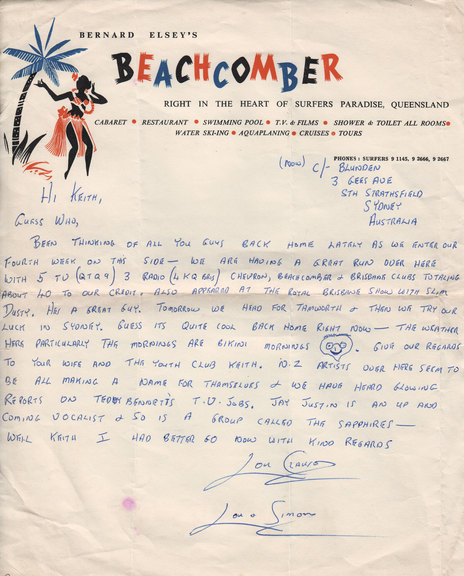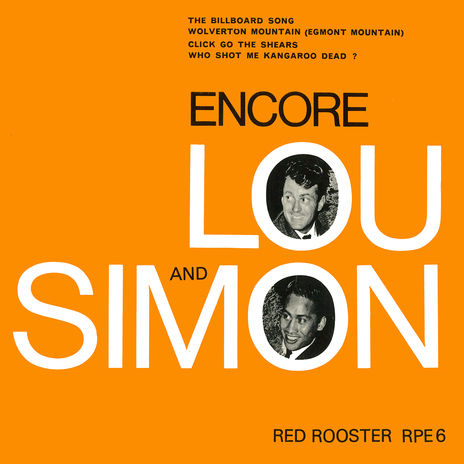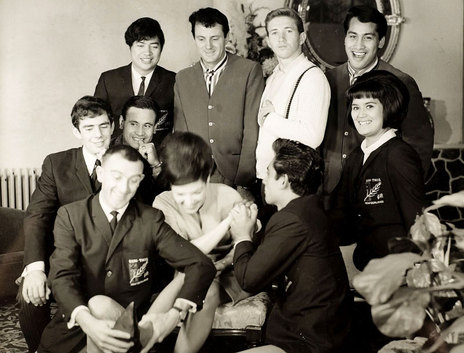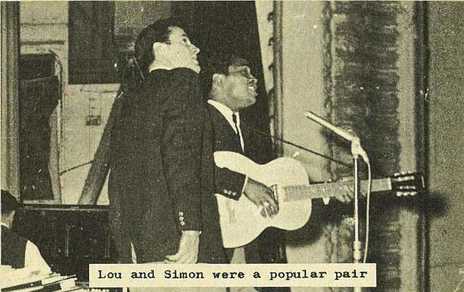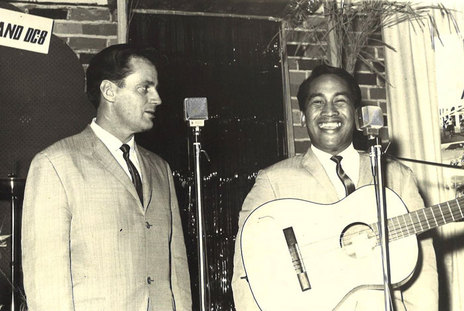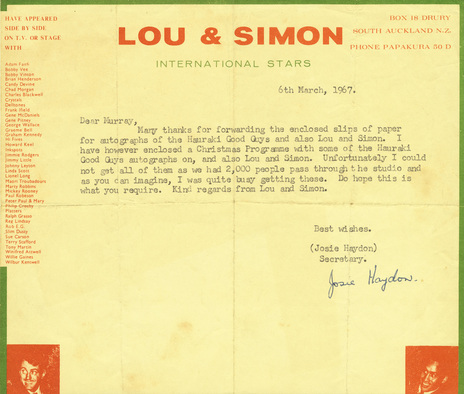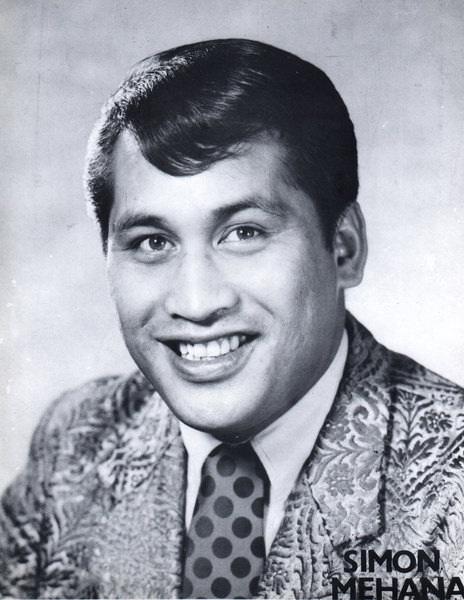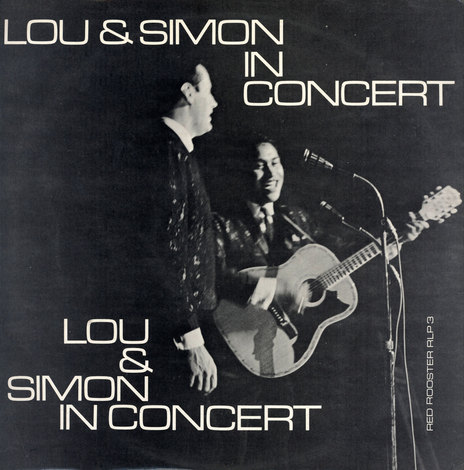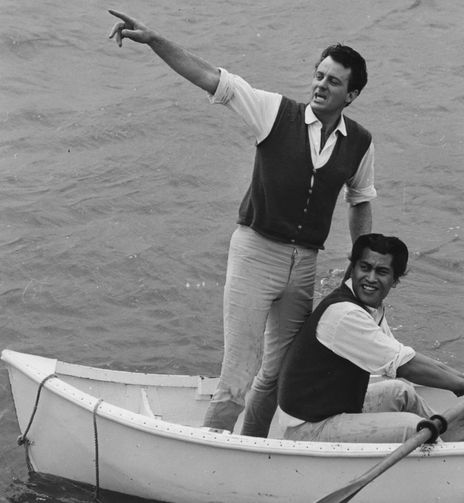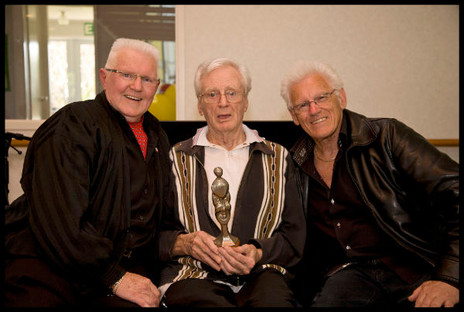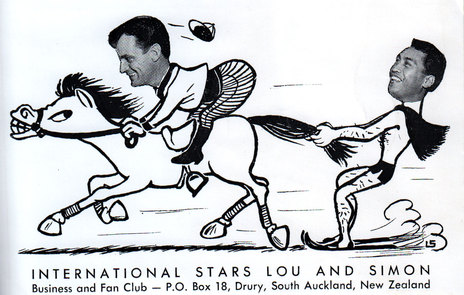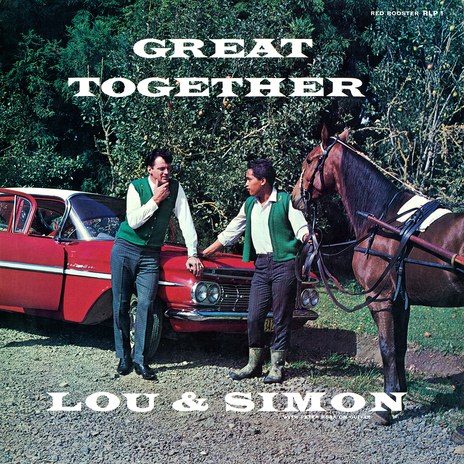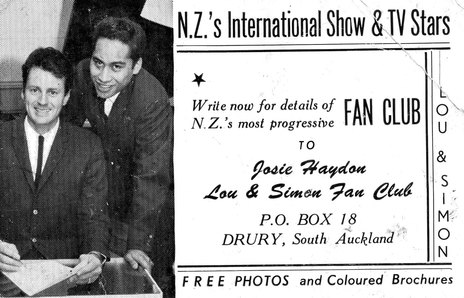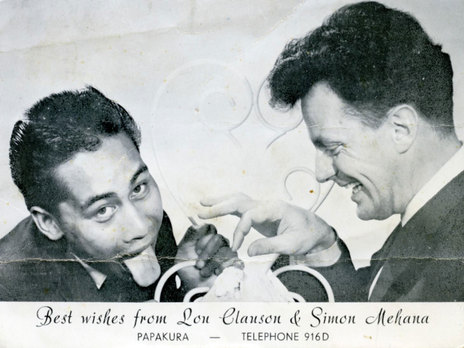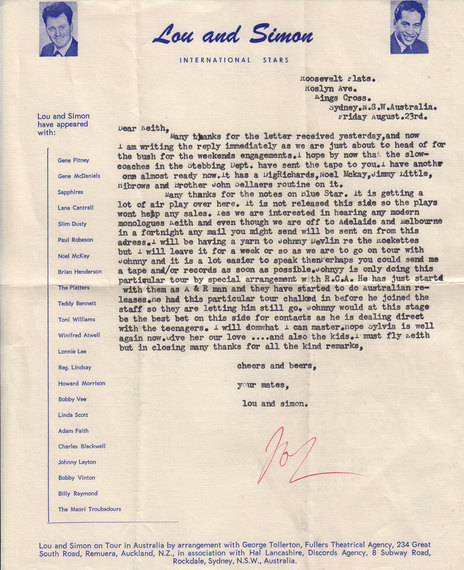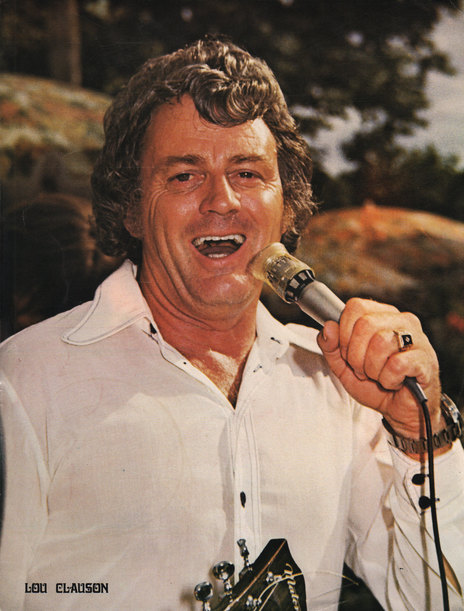When the duo began performing, in the late 1950s, Māori who migrated to the cities found it difficult to find housing. Some hotel bars, cinemas and even barbers put restrictions on Māori patronage (ironically, in 1961, a high-profile example of segregation in all three establishments was in Pukekohe, where Mehana grew up). Both Truth and the Auckland Star regularly ran “Hori jokes”, which perpetrated Māori stereotypes; the targets of the humour were expected to laugh along, in a “happy go lucky” way.
Lou and Simon were not racist, they were in fact an integrated comedy duo – Clauson was Pakeha, Mehana was Māori – and their humour typified the zeitgeist. They sang a few parodies such as ‘A Maori Car’ (to the tune of Leonard Bernstein’s ‘America’), and the humour usually poked fun at both Māori and Pākehā. But this type of song was just part of their repertoire, which also featured pop standards (and much corny banter, like a New Zealand version of Jerry Lewis and Dean Martin). As their albums The Maori Lou And Simon and Lou And Simon Sing Maori Songs revealed, they were adept at singing Māori favourites with exquisite te reo pronunciation.
The pair first met in 1957, on stage at the Maori Community Centre on Fanshawe Street near Victoria Park in Auckland. This was the place where Māori, new to the city, socialised in the 1950s. The venue’s concerts and talent shows were legendary. Mehana often performed there as a member of the teenage band the Hawaiian Swingsters.
Mehana started “acting the goat” and it ended up being a comedy routine. That night, a career was born.
One night Jack Kitchin, the centre’s manager, said that he had a Pākehā booked and he wanted Mehana’s band to back him. It was Lou Clauson, a visiting singer from Drury. Mehana ended up backing him alone, on a double bass. Still a schoolboy, he needed to stand on a box to reach the neck. Of course, Mehana started “acting the goat” and it ended up being a comedy routine. That night, a career was born.
Lou and Simon quickly got many, many bookings around Auckland, and shared bills with most of the big acts of the day, including Peter Posa, the Howard Morrison Quartet and Dinah Lee. They performed at corporate parties and even got paid one night just to show up at a private party in Remuera and mingle among the guests.
They released 15 singles, five EPs and seven albums, the latter mostly recorded at live shows. Among the tracks were parodies of ‘Old McDonald Had A Farm’, ‘Click Go The Shears’, ‘All My Loving’, ‘Yellow Submarine’, ‘There’s A Hole In My Bucket’ as well as comedy songs such as ‘Decimal Coinage’, ‘I’ve Got Five Dollars And It’s Saturday’, and ‘I Remember You (You Gave Me Asian Flu)’.
They toured throughout New Zealand, including stints on the Miss New Zealand shows, Harry Miller’s Showtime Spectacular tours, and were billed with Māori showbands. They also performed in Australia, the United States and Asia.
During the 1960s, Lou and Simon seemed ubiquitous, on radio, in the paper, the Women’s Weekly, and on television. In 1964 Auckland Star entertainment reporter John Berry wrote that their “blend of comedy and harmony have made them one of New Zealand’s most popular acts. They also happen to be two of the finest guys in the business. They have never been known to let an engagement slip … They are the first to fill a breach, without rehearsal if necessary, if another entertainer falls ill. They are troupers in a sense which one associates more with the days of vaudeville than with the hurly-burly and tempo of modern entertainment.”
Lou and Simon worked together for 12 years, before going their separate ways in 1969. A reunion tour took place in 1984, and they were awarded the Queen’s Service Medal in 1988 for services to entertainment. Simon Mehana died in 2001, while Clauson passed away on 28 December 2013.
